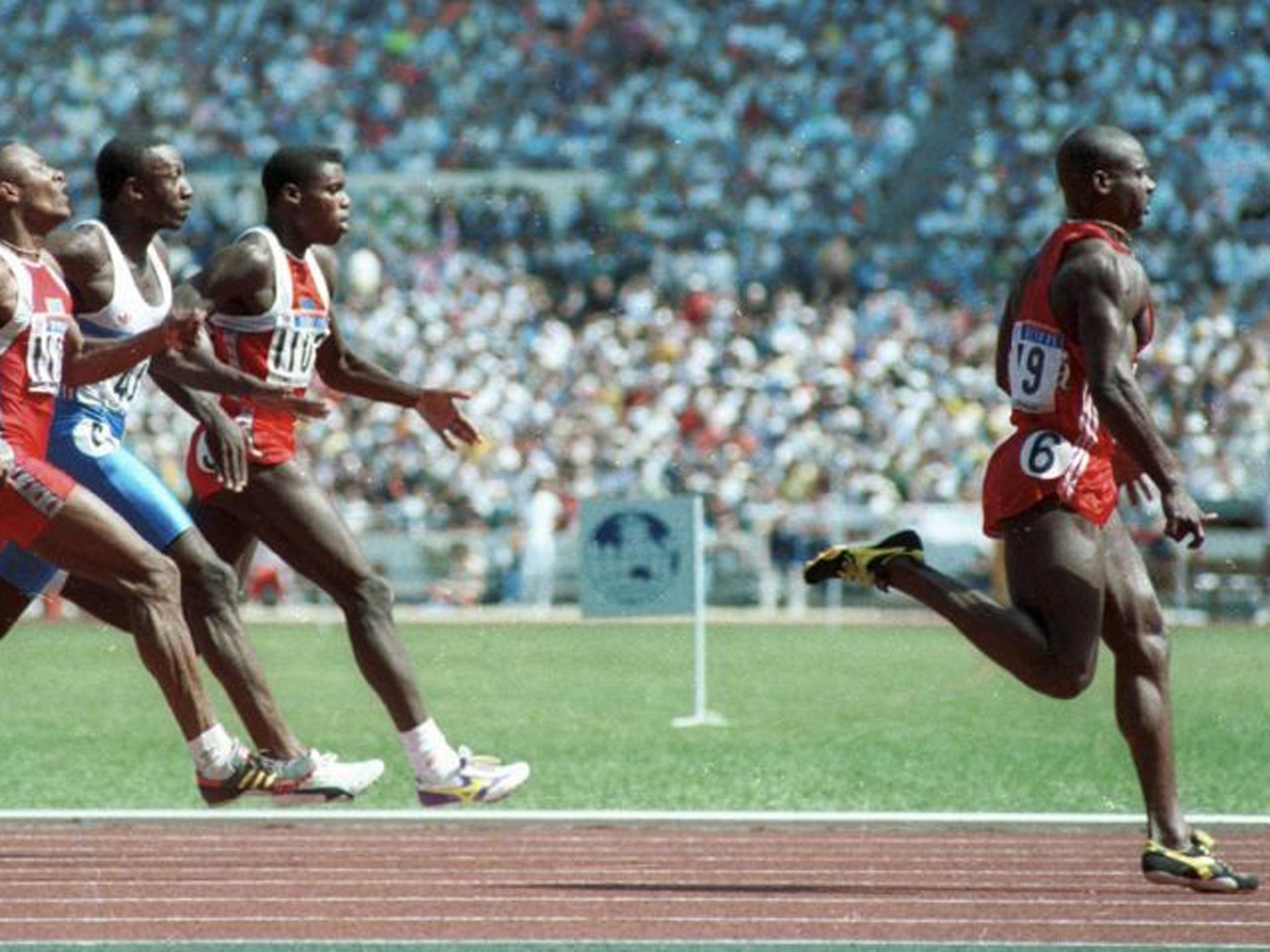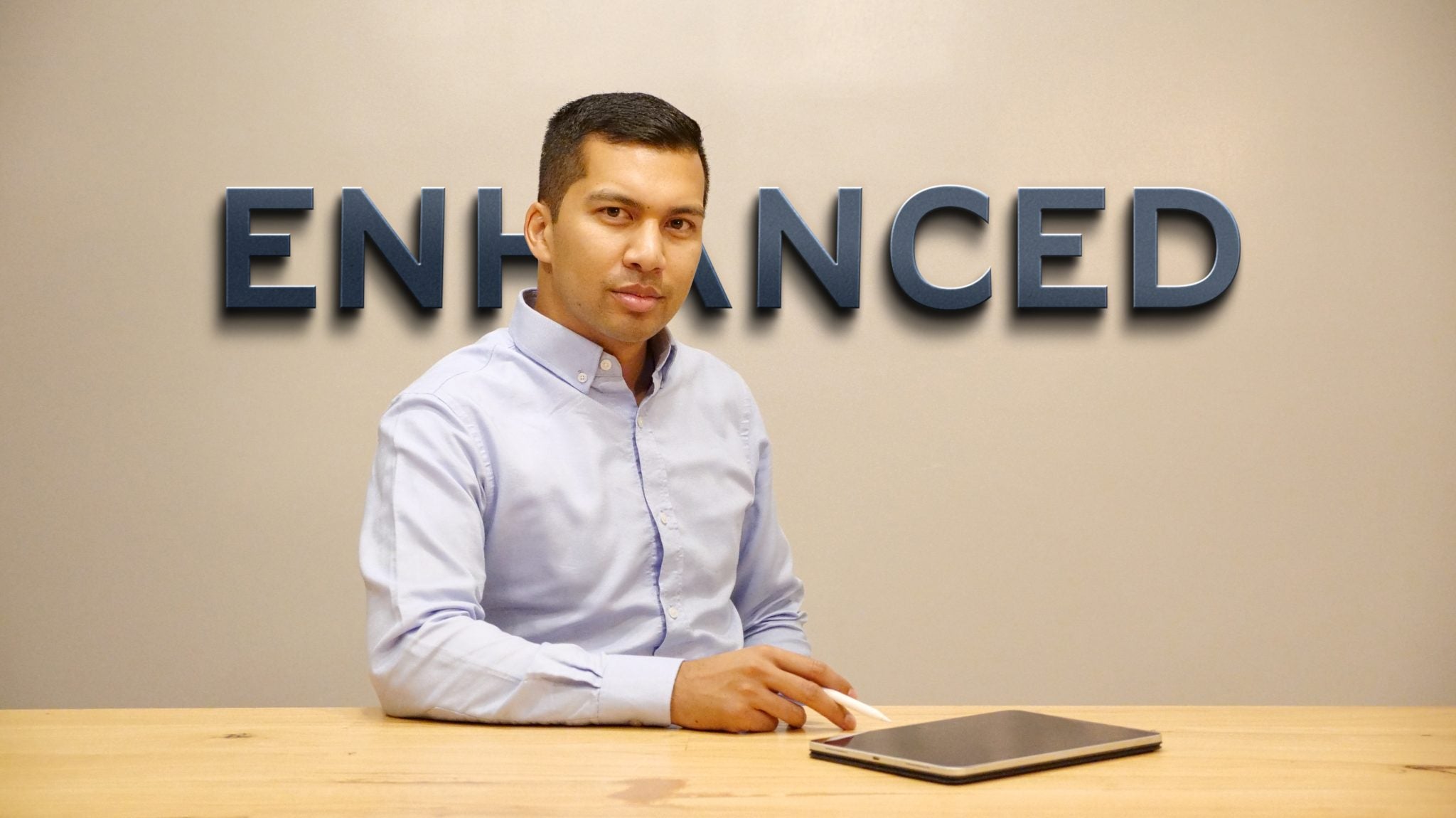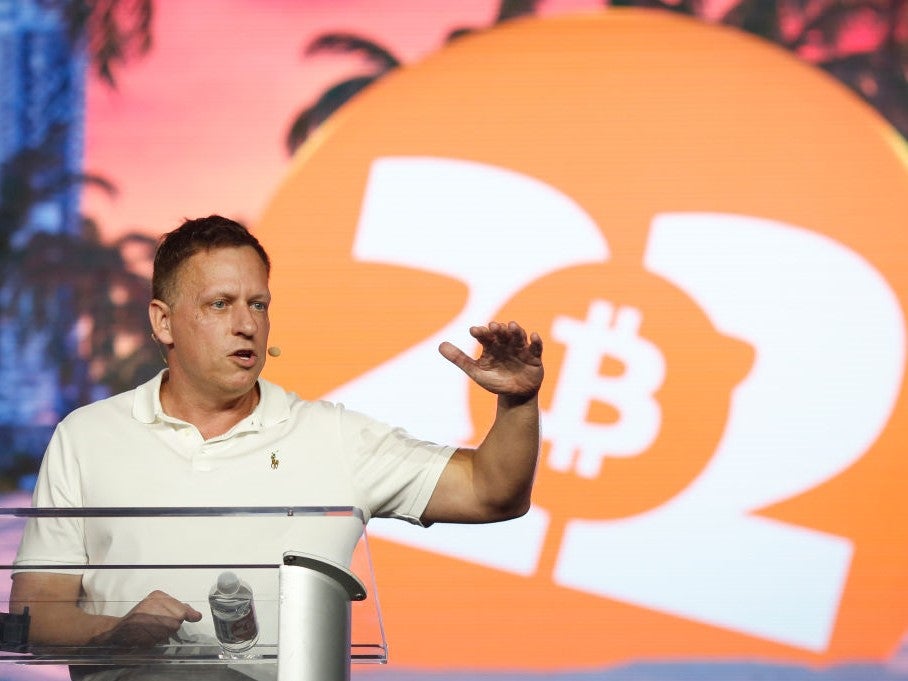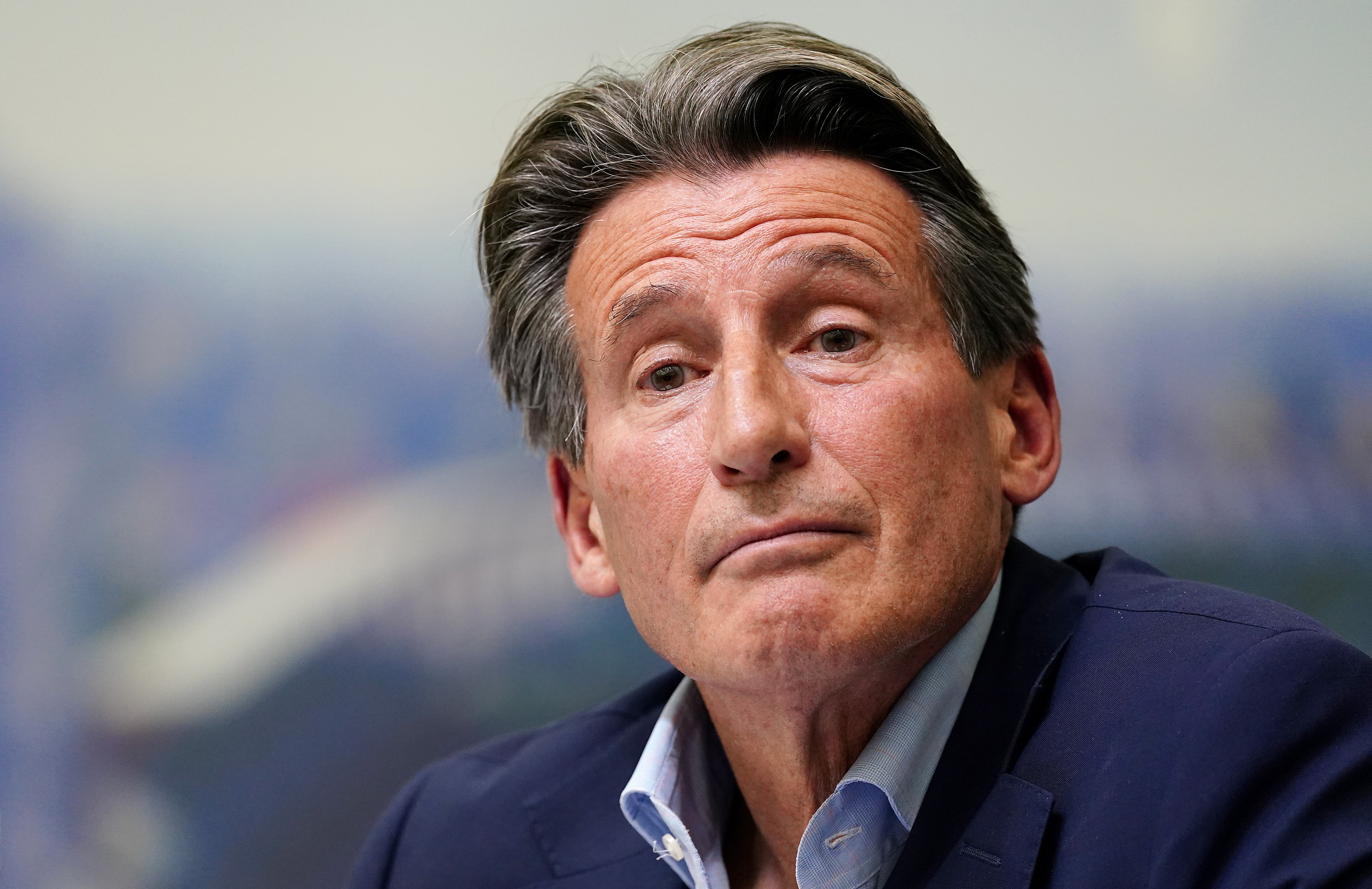‘I want to see 60-year-olds breaking world records’: Welcome to the Olympics with NO drug testing
Seb Coe says ‘it’s a joke, unfair, and unsafe’. The head of US anti-doping calls it ‘a dangerous clown show’. Lawrence Ostlere talks to Dr Aron D’Souza, the Australian lawyer who wants to launch the Enhanced Games, a controversial Olympic-style mega-event in which doping is not just allowed but actively encouraged...


On his fifth day at Oxford University, Australian law student Aron D’Souza attended a talk by Peter Thiel, the billionaire co-founder of PayPal. Afterwards, D’Souza showed him around campus. As they chatted about Thiel’s business, D’Souza asked him a question: what is the biggest problem you face?
Thiel replied with a litany of problems, but the top of the pile was the unwanted press he was getting from a media outlet called Gawker, which had outed him as gay. Thiel didn’t want the attention of taking Gawker to court, but D’Souza had another, more cost-effective idea: what if Thiel bankrolled someone else’s lawsuit?
They met for dinner in Paris a few months later, where D’Souza presented his plan of attack. The 24-year-old student had never had a serious job but he made a compelling pitch, and he was hired. Thiel went on to wage a proxy war, secretly funding the wrestler Hulk Hogan, who had his own score to settle with Gawker over a sex tape made public. Five years later, Hogan won $140m in damages and Gawker Media filed for bankruptcy.
The story drew great intrigue in the media. At its heart was a mysterious, precocious young lawyer dubbed “Mr A”, who would turn out to be D’Souza. It became the subject of the bestselling book Conspiracy: A True Story of Power, Sex, and a Billionaire’s Secret Plot to Destroy a Media Empire. It became the focus of a Netflix documentary entitled Nobody Speak: Trials of the Free Press, which presented a dark picture of billionaires in cahoots with the Trump administration to strangle media freedom. Hollywood is now making the movie, says D’Souza, with an Oscar winner cast in his role.
It is an important story when considering D’Souza’s bold new venture, the Enhanced Games. He wants to launch an Olympic-style mega-event in which doping is not just allowed but actively encouraged, to push the limits of human achievement. He wants to bring down what he sees as a corrupt and greedy International Olympic Committee (IOC) exploiting its athletes. And he wants to eradicate the World Anti-Doping Agency (Wada), which he calls “an anti-science police force for the IOC”.
On the surface, it is an absurdly ambitious plan. What athlete would sign up for something so controversial? Which brands would sponsor something so ethically compromised? Who would even host it? But then D’Souza is intelligent and well connected, and he has brought down big targets before. So when he says it’s going to happen, he is deadly serious.

“We’ve raised money from some of the most famous venture capitalists in history, the people who are literally in the business of building the future,” he tells The Independent. D’Souza lives in London but is speaking over video from a holiday in Bangkok, wearing a smart shirt in a wood-panelled office room. There is a calm defiance in his voice when I suggest that pulling off this operation might be impossible, even before we get into the ethics.
“I’ll be honest, Mercedes-Benz isn’t going to be the sponsor of the first Enhanced Games,” he says. “But the reality is, now that I have the equity capital necessary to finance the whole first event, it’s very easy, right? I can offer multimillion-dollar prizes to athletes coming to compete. If an athlete breaks the 100m world record, there’s definitely going to be a seven-, maybe even eight-figure prize for them.”
This is one of D’Souza’s main arguments: that the athletes are not being properly rewarded by the not-for-profit Olympic system. D’Souza sees himself as not only a disruptor of the sports industry but a freedom fighter for oppressed sports stars.
“The Olympic Games brings in $8bn in quadrennial revenue. The athletes don’t see a penny of that. Usain Bolt, in his entire career – the finest specimen of our species, arguably – only earned $12m. So someone is profiting from this, and it’s not the athletes. It’s not the host city. It’s the bureaucratic apparatus of the IOC and the sports federations, and they produce no value for the wider community.”
It is certainly hard to justify why the IOC’s immovable president, Thomas Bach, receives €275,000 in indemnity payments, making him a very well-paid “volunteer”. Or why the IOC needs to retain around $5bn in assets. The IOC argues that it redistributes vast sums to national federations as well as grassroots projects, and that a profit model would strip the Olympics down to a few major nations competing in a few popular events.
But this is D’Souza’s other key argument: that the Olympic Games could and should be a profitable business, and that its exploited athletes are ripe to be poached and rewarded.
“Think of this like LIV Golf versus the PGA,” he says. “You would have never imagined five years ago that LIV would literally own the PGA. The Saudis had to spend hundreds of millions of dollars to attract those players because they were already earning tens of millions. What’s advantageous in our circumstances is the athletes earn virtually nothing. So to recruit them over to the Enhanced Games takes very little and, at the same time, they hate the IOC.”
It would be the safest sporting event in history ... I don’t want an athlete to have a cardiac arrest in front of billions of people on television. That wouldn’t make economic sense for us
There is certainly some truth in that, and you only need to see how athletes railed against limits on personal sponsorships ahead of Tokyo 2020 to see evidence of the friction D’Souza is talking about. But why open up the event to performance-enhancing drugs (PEDs)?
D’Souza cites studies that suggest as many as 44 per cent of athletes have used PEDs. When samples from the London Olympics were later reanalysed by the International Testing Agency, it found 73 anti-doping rule violations and reallocated 46 Olympic medals. There is a reason London 2012 was dubbed “the dirtiest Games in history”.
Wada says modern testing techniques have improved and it is winning the fight against dopers. It has set up a Prevalence Working Group to attempt to answer the question of exactly how many cheats might be out there. But D’Souza’s line of argument is similar to those for legalising drugs: rather than try to win an expensive and unwinnable war, why not set PEDs free and regulate them?
I suggest just a few of the many criticisms of his idea: that drugs would mask true human performance, that they would create an unlevel playing field favouring those athletes with the financial backing of science and technology, that children might mimic athletes taking harmful substances, and that – most importantly – athletes would seriously harm themselves to win. Someone would surely die competing.
D’Souza is adamant that it would be “the safest sporting event in history”, with health check-ups and full screening for every athlete before they take part. “I don’t want an athlete to have a cardiac arrest in front of billions of people on television. That wouldn’t make economic sense for us.”
It is not just PEDs: shoe technology and prosthetic limbs would be allowed. “I want to see 40, 50, 60-year-olds break world records. Wouldn’t that be amazing? And as soon as we break the 100m world record, the mile world record, who’s going to want to watch the old, slow Olympics? Is NBC going to pay billions of dollars to broadcast a slow sporting event? Are cities going to invest billions of dollars to host a slow sporting event? They’re not going to.”
He points to the demise of the Commonwealth Games as an example of the failure of the current model. The 2026 Commonwealths were cancelled due to escalating costs and D’Souza predicts there will never again be a city willing to bear the risk. “I think the same thing is gonna happen to the Olympic Games on the current model,” he says.
And here we come to D’Souza’s grand vision. He sees the Enhanced Games not just as a mere sporting event, but as a petri dish from which astonishing feats of mankind will grow; as a place for “transhumanism” – the use of technology to expand human ability beyond our biological limits – to flourish.
“This is the route towards eternal life,” he says, now impassioned by his cause. “It’s how we bring about performance-medicine technologies, that then create a feedback cycle of good technologies, selling to the world, more revenue, more R&D, to develop better and better technologies. And what is performance medicine about? It’s not about steroids and getting jacked muscles. It’s about being a better, stronger, faster, younger athlete for longer. And who doesn’t want to be younger for longer?”
It is some mission statement, and it brings us back to Thiel. The PayPal entrepreneur has invested millions into life extension research, like organisations such as the Methuselah Foundation, which aims to “extend the healthy human lifespan by making 90 the new 50 by 2030”. Thiel is, by all accounts, obsessed with the idea. A 2016 Vanity Fair article was headlined “Peter Thiel Wants to Inject Himself With Young People’s Blood”.

D’Souza shares some of this fascination. “Anti-ageing technology is the next great innovation and the Enhanced Games will be the platform to bring this into reality,” he says. “And if there’s a magic pill that makes us younger, the fountain of youth, there’ll be infinite revenue there.”
The first Enhanced Games were meant to be staged late this year, though that now seems unlikely given the timescale. D’Souza claims to have been contacted by hundreds of interested athletes but a major name is yet to come out in support of the plans. The most prominent backer is South Africa’s retired Olympic gold medallist Roland Schoeman, who served a doping ban. He has joined the event’s Athletes Advisory Commission.
The proposal is to start with five sporting disciplines: athletics, aquatics, gymnastics, combat and strength. There would be no team or ball sports and nothing that requires building specialist venues like a velodrome. “I will not allow stadiums to be built for the Enhanced Games,” he says. “Building a dozen stadiums and throwing them away after two weeks is just a recipe for disaster.
“If we cut out all the waste, the layers of bureaucracy, the needless building of infrastructure, this event can be delivered for virtually nothing, and we can use all the surplus profits to pay the athletes, to invest in R&D, build better and better technology and build a bigger and bigger event.”
The reaction to D’Souza’s plan from the sporting world has been largely dismissive. “No one within athletics takes the Enhanced Games seriously,” said Lord Sebastian Coe, head of World Athletics, on a recent podcast. Anna Meares, former Olympic track cycling champion and Australia’s Olympic chief for Paris 2024, said she is appalled by the concept. “It’s a joke, to be honest. Unfair, unsafe – I just don’t think this is the right way to go about sport.”
Travis Tygart, the head of the US anti-doping agency (Usada), called it “farcical … likely illegal in many [US] states” and “a dangerous clown show, not real sport”. D’Souza is swimming against the tide but he remains unperturbed, saying Tygart doesn’t “have the balls” to publicly debate the Enhanced Games “because he knows he’d lose”.

He calls the IOC a “kleptocracy” and makes a comparison with the dictatorship in North Korea.
“The IOC is a big system but it’s not invincible. Change happens in our world. Revolutions happen. Often, it just starts with one person, with a little idea, who writes a book or a paper or an essay. Often they’re derided by common elites – you can see this in Martin Luther or Karl Marx – and suddenly, it gains traction. When all this began, I thought, ‘I’m shredding my reputation for this’, but I know it’s the right thing to do.”
Given his determination to change the world, I ask if D’Souza might one day want to go into politics, and he laughs. The political system is ineffective and fundamentally broken, he says. But he is convinced he can free Olympic sport from its shackles. He describes himself as a libertarian, a problem solver and “a relentless optimist”.
The Enhanced Games will happen, he insists. “I will have a war chest of hundreds of millions of dollars over the next few years to build the future of sport.”
Join our commenting forum
Join thought-provoking conversations, follow other Independent readers and see their replies
0Comments